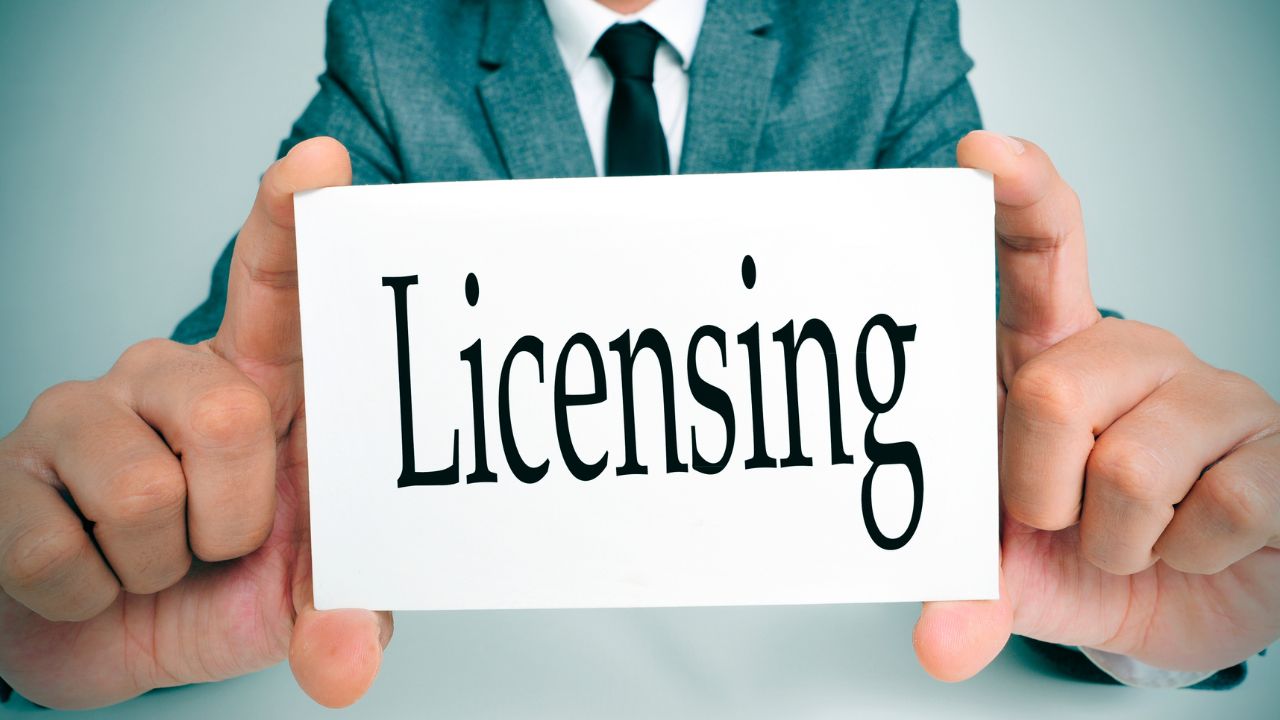Licensing IP revolves around Intellectual Property (IP), one of the most valuable assets for individuals or businesses. From innovative inventions to distinctive brands and creative works protected by copyright, IP embodies the essence of human creativity and innovation.
It forms the backbone of many successful businesses and brand strategies by offering distinct advantages in competitive markets. A powerful way to maximize the potential of your IP assets is by licensing IP.
This guide will break down the basics of licensing intellectual property, explore the types of licenses, and show how it can transform businesses in industries such as online retailing and beyond.
Understanding Licensing IP
Licensing IP means granting someone else the legal right to use specific intellectual property under agreed conditions while retaining ownership. Intellectual property encompasses several forms, including patents, trademarks, copyrights, and trade secrets.
By licensing IP, you allow another party to use those assets in their products and services in exchange for compensation. At the heart of this arrangement is an IP licensing agreement, which outlines the terms of use.
This agreement includes crucial details like the rights being granted, the time period the license will cover, the geographic area it applies to, and financial aspects such as royalty payments.
For example, a software company could license its patented technology to a hardware manufacturer. The hardware company incorporates the software into its products while the software company earns royalties.
This arrangement not only strengthens their strategic partnership but also generates additional revenue streams for the software company and broadens its influence.
Such licensing also plays a vital role in sectors like online retailing, where companies might license unique digital solutions to improve customer experiences or secure trademarked brand identities for exclusive use.
Why Licensing IP Matters
Licensing IP offers significant benefits for both IP owners and licensees. Here’s why businesses and individuals often leverage this strategy:
Creating Extra Revenue Streams
Licensing intellectual property enables IP owners to generate income without directly producing or selling products. Payments like royalties or lump-sum fees can become a steady and substantial revenue stream, particularly in industries focused on retail marketing or product innovation.
Increasing Market Share
Breaking into new markets can be both challenging and expensive. Licensing IP can help businesses expand into new regions by enabling other companies to use their intellectual property. By licensing IP in specific territories, businesses can increase market share without the high costs of establishing a local presence or building regional operations.
Focusing on Core Competencies
By licensing ideas, such as patent licenses, businesses can focus their resources and time on core competencies. For instance, a company with expertise in retail marketing strategy could license advanced manufacturing technologies instead of developing them internally.
Gaining a Competitive Advantage
Unique products and services developed through licensed IP give licensees a significant edge. At the same time, licensors strengthen their brand visibility and presence in various markets, enhancing their industry leadership.
Facilitating Strategic Partnerships
Licensing IP often sparks mutually beneficial collaborations and strategic partnerships. These relationships can lead to new opportunities such as joint ventures, cross-licensing arrangements, or long-term business growth.
Components of an IP Licensing Agreement
A well-structured IP licensing agreement protects both parties and ensures smooth collaboration. The following are key elements often included in such agreements:
1. Type of License
Licenses can be:
- Exclusive – Only one licensee gains the rights, and even the licensor cannot exploit the IP during the time period.
- Non-Exclusive – The licensor can issue licenses to multiple parties and still use the IP themselves.
2. Fee Structure
A fair and transparent fee structure is critical. This typically includes royalty payments (a percentage of sales) or upfront lump-sum payments. Well-crafted terms encourage both equity and profitability.
3. Scope of Use
This specifies how the licensee is allowed to use the IP. For instance, is it strictly for internal purposes, or can the IP be used in products being sold to consumers?
4. Geographic Area
This clause sets the spatial limitations of the licensing rights. A license may apply to a local market, a specific country, or global territories. For instance, a brand strategy for an online retailing company could involve trademark licensing in international markets.
5. Time Period
The duration of the agreement should be clearly stated. After this term, the agreement can be renewed, renegotiated, or allowed to expire.
6. Rights and Obligations
Each party’s responsibilities are defined here. For example, the licensor may handle IP registration while the licensee focuses on marketing under their retail marketing strategy.
Types of Intellectual Property Eligible for Licensing
Different kinds of intellectual property require tailored licensing strategies. The most common categories include:
1. Patents
Patents protect inventions or industrial innovations. Licensing your patented technology can drive innovation and open new market opportunities for both licensors and licensees.
2. Trademarks
Trademarks protect brand identifiers like logos or slogans. Licensing your trademark can spread your brand’s reach, especially in online retailing or product-focused sectors.
3. Copyrights
This applies to artistic or creative works such as music, literature, and visual art. Copyright licenses grant others limited usage rights with terms that ensure proper compensation.
4. Trade Secrets
Licensing trade secrets involves strict agreements to protect confidential information. For example, a unique method of personalizing shopping experiences could be licensed, helping both parties scale rapidly in retail marketing.
Common Misconceptions About Licensing IP
Several myths about licensing intellectual property can hold businesses back. Here are some common misconceptions and their truths:
- “Licensing IP means losing ownership.”
False. Licensing only grants usage rights under agreed terms, and ownership always remains with the licensor. - “Licensing is only for big companies.”
Incorrect. Even small businesses can license their intellectual property to access broader markets and collaborate with larger organizations. - “Creating an IP licensing agreement is simple.”
Not quite. A solid agreement often needs professional legal advice to ensure compliance and fair terms.
Steps to License Your IP
If you’re ready to start licensing intellectual property, follow these essential steps:
1. Evaluate Your IP Assets
Identify which of your IP assets hold commercial potential. For instance, patented innovations or trademarked brands in online retailing could appeal to various businesses.
2. Define Your Licensing Goals
Set clear objectives, whether it’s earning royalties, expanding market presence, or enhancing collaboration.
3. Research Potential Licensees
Find reliable parties who will benefit from your IP while aligning with your brand strategy and shared goals.
4. Draft a Solid Agreement
Hire legal experts to craft a comprehensive IP licensing agreement that protects your rights and fosters mutual growth.
5. Manage the Relationship
Maintain oversight to ensure that the licensee adheres to the agreement and properly utilizes your IP in their products and services.
Final Thoughts
Licensing IP offers a valuable way for individuals and businesses to tap into their intellectual property’s full potential. By leveraging expertise, adopting a tailored retail marketing strategy, and forming partnerships with established brands, you can monetize innovation, build influence, and expand globally. From online retailing to high-tech innovations, the possibilities are endless.
If you’re ready to harness the power of IP licensing or need help navigating agreements, the team at Marketing Immersion is here to assist. Start unlocking the true potential of your intellectual property today!






